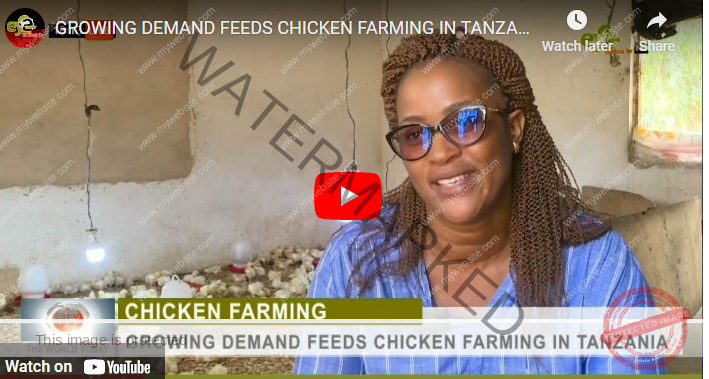Becoming a succsuful farmer anywhere in the world is not a daunting task; rather, it is a task that requires a combination of passion, dedication, and practical knowledge.
Agriculture is not just a profession; it’s a way of life that demands resilience and a deep understanding of the land. This step-by-step guide is designed to provide aspiring farmers with a roadmap to success in the agricultural industry.
10 Guide To Become A Successful Farmer [Farmer’s Guide]
Step 1: Define Your Goals and Specialization
Before delving into the world of farming, take the time to define your goals and choose a specific area of specialization. Whether you’re interested in crop cultivation, livestock farming, or a combination of both, having a clear vision will help you focus your efforts and resources.
Read Also: Top 8 Biggest Agricultural Companies In USA [2024 Ranking]
Step 2: Gain Education and Training
Acquiring knowledge about agriculture is crucial for success. Attend workshops, agricultural courses, and seminars to understand the latest farming techniques, sustainable practices, and market trends. Many agricultural universities and extension services offer valuable programs to help you build a strong foundation.
Step 3: Develop a Detailed Business Plan
Crafting a comprehensive business plan is essential for any aspiring farmer. Include details about your chosen specialization, budget, equipment needs, marketing strategy, and long-term goals. A well-thought-out plan will serve as a roadmap and aid in securing funding if necessary.
Read Also: Top 10 Free Agricultural Loan For Farmers In USA
Step 4: Secure Adequate Funding
Farming often requires substantial initial investment for land, equipment, seeds, and livestock. Explore funding options such as loans, grants, or partnerships to secure the necessary capital. Present your business plan to financial institutions or agricultural agencies to demonstrate the viability of your venture.
Step 5: Acquire Suitable Land
Selecting the right piece of land is a critical decision. Consider factors such as soil quality, climate, water availability, and proximity to markets. Conduct soil tests to determine fertility and assess potential challenges. Ensure that zoning laws and regulations align with your farming activities.
Read Also: How To Start A Lucrative Farming Business In Philippines
Step 6: Invest in Quality Equipment and Technology
Efficient and modern equipment can significantly improve productivity. Invest in quality tools, machinery, and technology to streamline your farming operations. Stay updated on the latest advancements in agricultural technology to remain competitive and sustainable.
Step 7: Implement Sustainable Farming Practices
Environmental sustainability is increasingly important in modern agriculture. Incorporate sustainable farming practices such as crop rotation, organic farming, and water conservation to promote long-term soil health and biodiversity. This not only benefits the environment but also enhances the marketability of your products.
Read Also: Top 5 Richest Farmers In Zambia [2024]
Step 8: Build a Reliable Support System
Networking is crucial in the farming community. Establish connections with fellow farmers, agricultural extension services, suppliers, and potential customers. Attend local farmers’ markets, join agricultural organizations, and engage in online forums to stay informed and build a supportive network.
Step 9: Market Your Products Effectively
Develop a strong marketing strategy to showcase your products. Utilize social media, create a website, and participate in local events to increase visibility. Building a brand and offering high-quality products will help establish a loyal customer base.
Step 10: Adapt and Innovate
The agricultural industry is dynamic, with evolving technologies and market trends. Stay informed, be open to adopting new practices, and continuously innovate. Adaptability is key to overcoming challenges and ensuring the long-term success of your farming venture.
Education Needed to Become a Farmer:
While formal education is not a strict requirement, obtaining a degree or relevant certification in agriculture, agribusiness, or a related field can provide valuable knowledge and skills. Many successful farmers also gain practical experience through internships, workshops, and on-the-job training.
5 Qualities of a Good Farmer:
Hard Work and Perseverance: Farming demands physical and mental endurance.
Adaptability: Successful farmers are flexible and can adjust to changing conditions.
Passion for Agriculture: A genuine love for the land and the lifestyle is crucial.
Business Acumen: Understanding market trends, budgeting, and strategic planning is vital.
Resourcefulness: The ability to solve problems creatively and make efficient use of resources.
I Want to Be a Farmer: Where Do I Start?
Define your goals and area of interest.
Gain relevant education and practical experience.
Develop a comprehensive business plan.
Secure funding and acquire suitable land.
Invest in quality equipment and embrace sustainable practices.
Build a network within the farming community.
Market your products effectively.
Which Farming is Most Profitable?
Profitability depends on various factors, including location, climate, and market demand. Generally, niche and high-value crops such as organic produce, herbs, and specialty fruits can be more profitable. Livestock farming, especially in niche markets like organic or grass-fed, can also yield good returns.
What Makes Farmers the Most Money?
High-value crops or specialty products often bring in more revenue. Additionally, diversification, value-added products, and direct-to-consumer sales through farmers’ markets or farm-to-table initiatives can increase profitability.
How Can a Farmer Increase His Farm Income?
Diversification: Explore different crops or livestock to spread risk.
Value-Added Products: Process raw products into value-added items for higher returns.
Direct Marketing: Sell products directly to consumers through farmers’ markets or community-supported agriculture (CSA).
Technology Adoption: Embrace modern farming technologies to increase efficiency.
Collaboration: Partner with other farmers for joint ventures or shared resources to reduce costs and expand markets.
Becoming a Successful Farmer in South Africa:
Education and Training:
Obtain relevant education in agriculture, agribusiness, or related fields.
Participate in training programs and workshops to acquire practical skills.
Understand Local Conditions:
Familiarize yourself with the diverse climates and soil types in South Africa.
Choose crops or livestock that thrive in your specific region.
Access Funding and Resources:
Explore funding options available through government programs or agricultural loans.
Invest in quality equipment and technology to enhance efficiency.
Community Engagement:
Build connections with local farmers and agricultural organizations.
Stay informed about market trends and collaborate with the community.
Market Awareness:
Develop a solid marketing strategy to promote your products.
Explore export opportunities and engage with local markets.
Sustainable Practices:
Embrace sustainable farming practices to preserve the environment.
Consider organic farming methods to meet growing market demands.
Adaptability and Innovation:
Be adaptable to changing conditions and market dynamics.
Embrace innovative technologies to improve productivity.
Becoming a Successful Farmer in Nigeria:
Practical Training:
Gain hands-on experience through apprenticeships or practical training.
Attend local agricultural workshops and extension programs.
Land Selection:
Choose land suitable for your chosen crops or livestock.
Consider soil quality, water availability, and climate conditions.
Access to Finance:
Explore government-sponsored agricultural loans and grants.
Develop a sound business plan to attract potential investors.
Crop Diversity:
Diversify your crops to minimize risk and cater to diverse market demands.
Consider high-demand crops such as cassava, maize, or vegetables.
Community Involvement:
Engage with local farming communities and cooperatives.
Share knowledge and resources with fellow farmers.
Market Strategy:
Develop effective marketing strategies to reach local consumers.
Leverage digital platforms for wider market reach.
Climate-Resilient Practices:
Implement practices that are resilient to Nigeria’s varied climate conditions.
Invest in water conservation methods and efficient irrigation systems.
Government Programs:
Stay informed about government initiatives and programs supporting agriculture.
Participate in schemes that provide inputs, training, or subsidies.
Post-Harvest Management:
Implement proper storage and processing techniques to reduce post-harvest losses.
Explore value-added products to enhance income streams.
Both in South Africa and Nigeria, a combination of education, practical experience, community engagement, and market awareness is essential for aspiring farmers to thrive in the agricultural sector.
Conclusion:
Becoming a successful farmer requires a combination of knowledge, dedication, and adaptability. By following this step-by-step guide, aspiring farmers can lay the groundwork for a thriving agricultural enterprise. Remember, farming is not just a profession; it’s a way of life that contributes to the sustenance of communities and the well-being of the planet.




